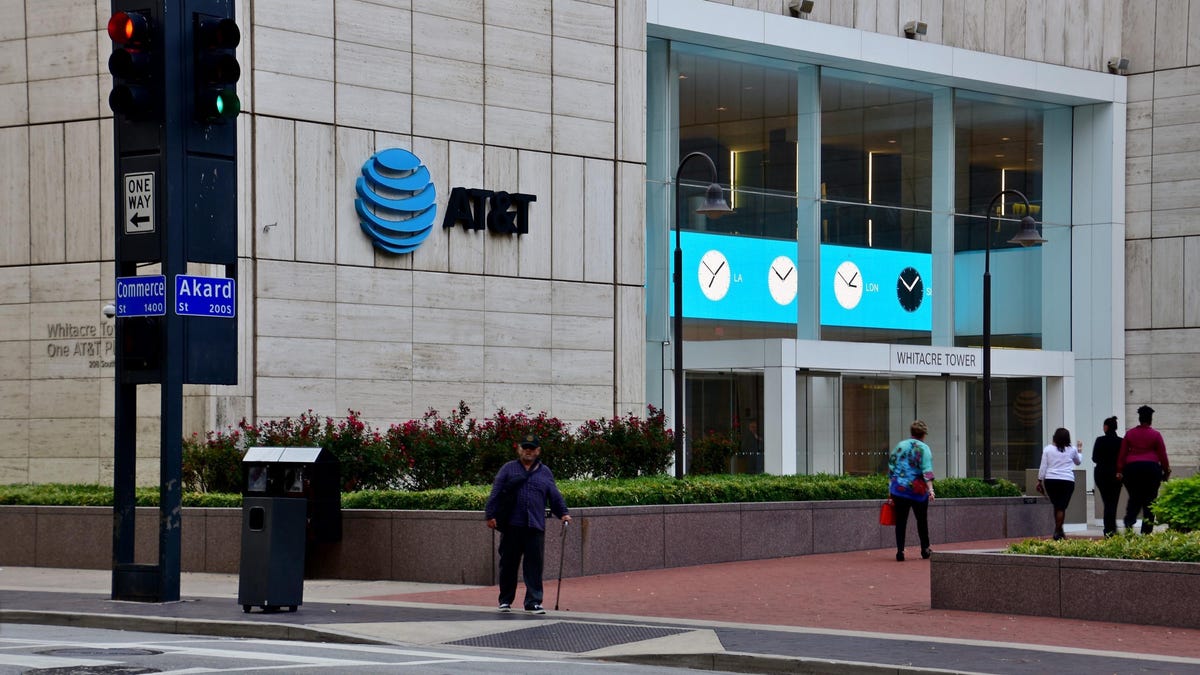Justice Dept. opposes AT&T-Time Warner deal one last time
Both sides of the antitrust trial make their closing arguments for and against the merger, which could reshape the TV industry and set the stage for future media mergers.

AT&T and the Justice Department make closing arguments Monday in the antitrust trial over the merger of AT&T and Time Warner.
The Justice Department reiterated Monday why it's against AT&T's $85 billion merger with Time Warner, saying the deal would hurt pay TV rivals and raise prices for consumers.
In closing arguments for the antitrust trial, Craig Conrath, the lead attorney for the Justice Department, said if the deal were to go through, AT&T would have an incentive to use Time Warner's cable channels like HBO, TNT and TBS as leverage to limit access to competitors and raise prices for consumers.
"They'll be a gatekeeper to the content their rivals need," Conrath said, according to The Hill.
The deal would also add hundreds of millions of dollars a year to consumers' TV bills, Conrath said, according to The Washington Post.
Monday's closing arguments were the last opportunities in the five-week-long trial for the two sides to make their cases before US District Judge Richard Leon in Washington, DC. His decision could have ripple effects on future deals between internet service providers and media companies. It could also affect what streaming services look like in the future. AT&T has invested heavily in a streaming video service called DirecTV Now, and it's looking to Time Warner to bulk up its original programming.
A Justice Department victory in the case could have a chilling effect on different companies looking to merge at a time when other streaming giants, like Netflix and Google's YouTube, are capturing more eyeballs. But AT&T has argued new rivals like Google, Facebook and Netflix are the bigger threat.
Conrath tried to poke holes in that argument in his closing statement. He said the need to move into new businesses to stay competitive was beside the point if the combined company would harm pay-TV customers.
"The fact that AT&T may want to compete in some other market, that doesn't give them a free pass to reduce competition in the pay-TV market," Conrath said, according to the Post's report.
'House of cards'
Daniel Petrocelli, the lead attorney for AT&T and Time Warner, fired back in his closing statement. He called the government's case a "house of cards" that hinged on the testimony and economic modeling of a key witness, Carl Shapiro, an economist at University of California at Berkeley, according to Variety. Petrocelli spent much of his closing argument attempting to discredit Shapiro's conclusions that the merger would increase pay-TV prices for consumers, Variety reported.
"There are so many things wrong with that model, I could go on for hours," Petrocelli said, according to the Post. He later added: "It's like 'garbage in, garbage out … the numbers are all over the place.'"
Petrocelli said the government's case "did not come close" to proving that the merger is anticompetitive. He added, "This is a case of theory in search of fact," according to Variety.
Judge Leon said he'd have a decision in the case by June 12, if not earlier. The AT&T-Time Warner deal is supposed to expire June 21, according to a deal the two companies worked out when the Justice Department announced its plans to sue to block the merger in November. It may be extended again if there is an appeal.
It's hard to predict which side will prevail in the case. Ketan Jhaveri, former antitrust attorney for the Justice Department's Telecommunications Task Force and co-CEO of legal tech platform Bodhala, said the government made a strong argument.
The Justice Department's presentation of its economic model could have been tighter, he said. But he commended the agency on its use of industry witnesses and the companies' own witnesses. He added that the testimonies during the trial from AT&T CEO Randall Stephenson and Time Warner CEO Jeff Bewkes justifying the merger "were like throwing spaghetti against the wall and hoping something stuck."
"If one was an outside investor, one would ask: Does AT&T or Time Warner know its strategy going forward?" he said. "Are they trying to sell digital ads against Google or Facebook or trying to gain subscriptions like Netflix or doing something completely unrelated like Amazon. These are all completely different strategies. The question is did the judge pick up on that?"
First published April 30 at 1:02 p.m. PT.
Updated 3:21 p.m. PT: Adds information about AT&T's closing argument and commentary from a former Justice Department official.
iHate: CNET looks at how intolerance is taking over the internet.
Tech Enabled: CNET chronicles tech's role in providing new kinds of accessibility.

